Sonica Festival 2024
What happened to the idea of progress? Featuring interviews with artists Celine Daemen, Ahmed El-Shaer, and Andrey Chugunov.
Progress is not inevitable. For most of human history progress would have been imperceptible. It wouldn’t have registered to people that the world was improving.
History was cyclical. The Bible may have had the concept of linear time, but only in the sense of an apocalyptic endpoint. It took the scientific revolution1 to inspire our modern understanding of progress.
Suddenly, life could be transformed in a couple of decades. New inventions, new perspectives, new fashions—humanity became addicted to novelty and convenience. In the nineteenth century, standards improved exponentially for some, while declining into squalor for others. Nevertheless—and with a few revolutions along the way—the trade-offs seem worth it. Almost every metric improved: infant mortality, longevity, household income, crime rates etc.
Yet, despite all this evidence of progress, why are we not optimistic about the future? It was with this question in mind that I visited Sonica, Glasgow’s festival of art and technology.
Progressing towards what?
After 500 years of progress, some are questioning what it was all for? Does a world of junk food, digital distractions, climate change, and microplastics count as human flourishing?
This is also the question at the heart of John Butler's The Fourth Planet, a fantastic short film that imagines life in a Martian colony. Butler takes seriously the ambitions of Elon Musk and Jeff Bezos. He is from the generation that grew up reading SF and who dreamt of living on a Stanford Torus.
Butler identifies three possible routes for making Mars habitable for humans. The first is geo-engineering—using CO2 to change the climate, with a class of indentured workers serve an elite. This fails in the film due to the harshness of Martian weather.
The second attempt is bio-engineering, adapting humans to the climate. Alas, the adapted population get literally alienated and decide to leave for the stars.
Finally, there is psycho-engineering, where they live immersed in a virtual reality (VR) simulation of Earth that allows them to ignore misery.
Of all the options, the latter is the one that is being pushed on earth the hardest. Mark Zuckerberg has spent billions developing VR (announcing new Augmented Reality glasses this week). It is a lot easier to put a helmet on your head than to change nature or human biology.
Songs for a Passerby (dir. Celine Daemen, 2023)
I’ve still only tried VR a handful of times. Each immersion has been intense, though not necessarily an experience I wanted to repeat. Celine Daemen’s Songs for a Passerby is a surreal and emotional VR opera, where you become a character in a journey into the nature of consciousness.
Interview with Celine Daemen
After experiencing Songs for a Passerby, I had the opportunity to interview Celine Daemen.
Neil Scott: What audience reactions have you had? Have people freaked out?
Celine Daemen: We have had people who are very afraid of dogs. Because it's an intimate one-person experience in VR, it's intense and people get scared. Some people are anxious in the dark cityscape. Some people really take their time, sit down next to the horse, and really sink into the moment.
How much do you feel you've got to prod people to move forward in the story?
Not much. We mostly have to tell people to take their time.
You're from the Netherlands, which is a high-trust society. I feel like VR is a high-trust art form. You put on this headset where you can't see the real world and hope that no one is going to play a trick on you. Have there been any issues with that in different places with different cultures?
Yes. We presented it in South Korea a few weeks ago and the poetry of the piece really spoke to the culture. People there were quite delicate watchers. I expected it to not land well in the United States, but the poetry still landed well in America.
What I pick up on is the dreamlike aspect of the piece. It's interesting because we're living in an age where dreams are undervalued, perhaps more so than at any other time. We don't see them as prophecy. We don't even have the Freudian psychological view of dreams anymore. It's just the brain processing stuff. What are your feelings about dreams?
I really wanted to work with this dreamlike structure to have intuitive logic and not physical-reality logic. The piece is about the contrast between physical reality and metaphysical reality. The idea of looking at your own body is also calling into question whether I am that body or am I a mind that is looking at that body? Is that me or is this me, the thing that can reflect on itself?
The current theory of dreams is that they are a way of processing experience.
Yeah, I think it's interesting. One moment you're right beside the dying horse. Later on, you are looking over the city and you see yourself standing next to the horse. So in a sense, that is really about also in the mind, revisiting the moments that you experienced while you were right in the middle. It's giving pace to reflect on things and asking are we kind of just in the middle of life having everything directly happened to us or are we also spectators of ourselves in situations? It's like this sad emotion of life is kind of rushing by and we are just spectators looking at ourselves while that happens. That's another interesting thing about dreams is that you cannot really act.
You're just frustrated ...
… And placed outside of it. So you feel very immersed, but at the same time, outside of it.
I was in The Hague recently and went to a place called Madurodam, which is this miniature version of Holland. Is there a Dutch tradition of worlds within worlds?
I am a huge sucker for miniature worlds, but I don't know if it's a cultural thing for the Netherlands.
Holland is known as a very ordered society, right? Clean, rational, good transport ... that's the perception from the outside at least.
It's funny you look at it like that. But I don't come from Holland. I'm from the deep south of the Netherlands, which is the Catholic part, which is also the messy part. Maybe there is something about Protestants and Catholics in the piece. The cultural fascination from growing up in a Catholic environment asking questions of the embodiment and the mind and the soul.
We are the second generation that has fallen out of faith but we are still left with these questions. It's not like I am proposing answers or saying this is what you have to believe. But the piece is a kind of play space for us to go through these questions.
The Narrative (dir Ahmed El-Shaer, 2024)
There is another VR experience in the Glasgow City Chambers. With Ahmed El-Shaer’s The Narrative, rather than walk around a space, you use a joystick to control your experience. Alas, there's only one direction—forward into a pixelated, polygon world of marble and symbols. A historical narrative commentary is quietly spoken in the background.
Interview with Ahmed El-Shaer
Neil Scott: This year's Sonica has, for me, been about getting back into VR. Do you think VR is still on an upward trajectory? In ten years will it be indistinguishable from reality? Are we going full Matrix?
Ahmed El Shaer: Yeah, actually, I feel we are already in Matrix, to be honest with you. Look at what happened in Beirut from two days ago [when the pagers of Hezbollah exploded].
Do you have a vision of what the future will look like?
There will be more and more mixing between reality and the physical. With the latest headsets, you not only go into VR, you turn your physical room into VR. Day by day, it's going to this level. We now have these sensor suits where your body and movement are recorded and transferred to be simulated inside the VR library. More and more, technology is not to be part of our life but to be the life.
Do you think we're in control of technology? Or do you think the technology takes care of itself?
Until now, we are safe. Until now, it's still in the tools category. But it's becoming the controller of people's behaviour and thinking. You don't need VR to change people's way of thinking, you only need Facebook.
Do you have any predictions of what the world will look like in 20 years?
Maybe the closest idea about how the future will look is something like Ready Player One. The film is not bad, but the novel is better. The transfer of everything to be under control, controlling behaviour and way of thinking.
… And living in shipping containers?
Houses have become smaller. You don't need a lot of furniture like before because all the devices and tools you need are in one smartphone. Day by day, you don't need as much space. And most of your day will be inside virtual reality.
Melting Through the Scatters of Time (Andrey Chugunov)
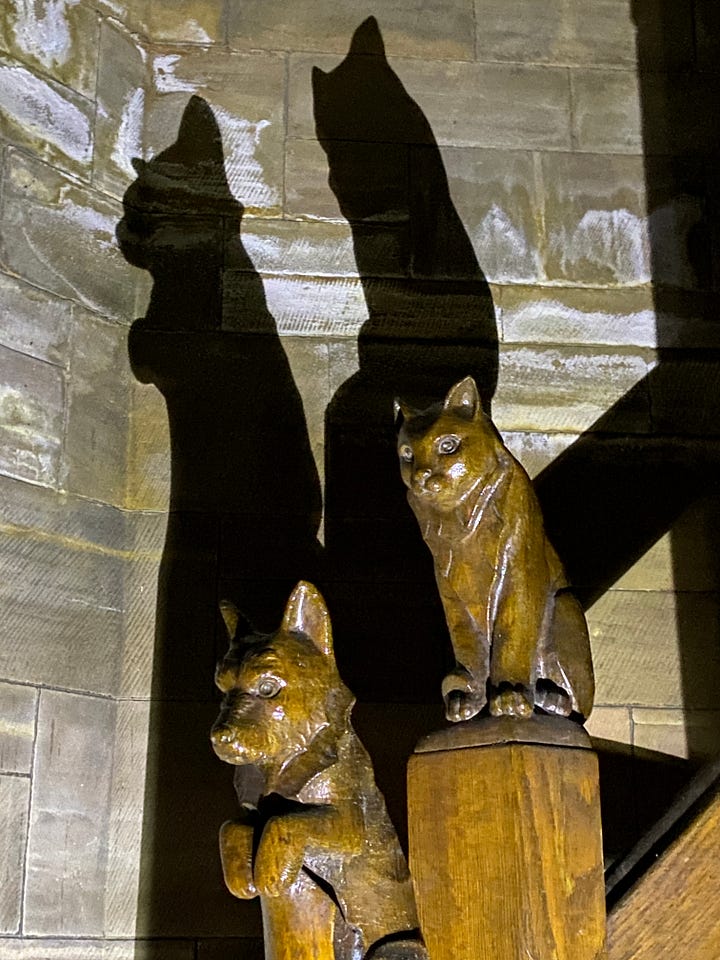
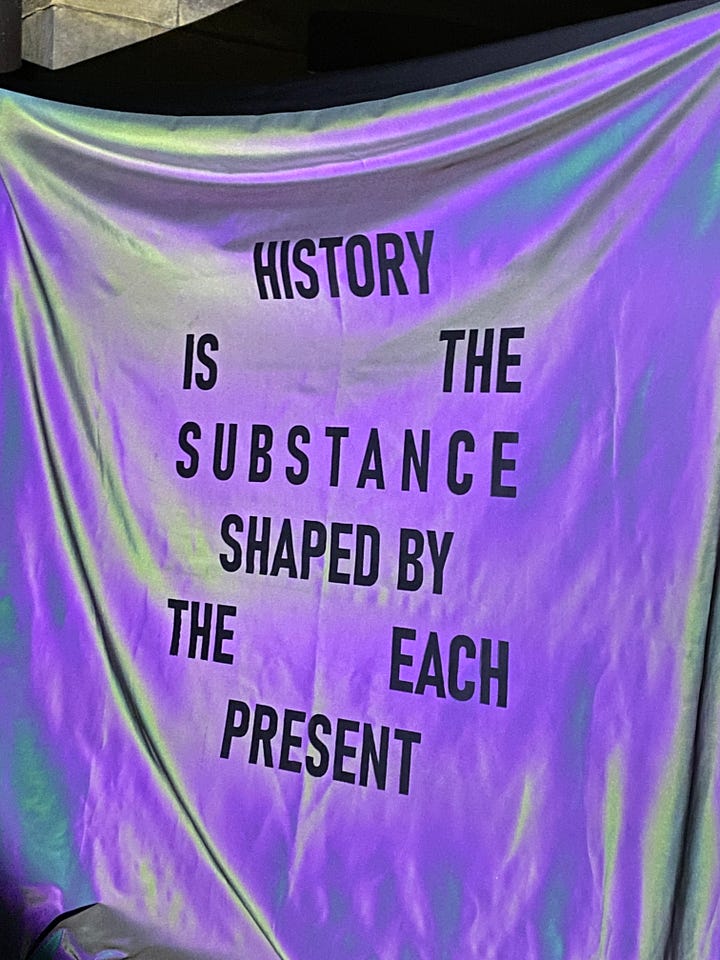
Part of the appeal of Andrey Chugunov's Melting Through the Scatters of Time was that it was shown in two historic buildings that are rarely open. Once the novelty of being in the Mercat Cross and the Tolbooth Steeple had worn off, my thoughts turned to the nihilistic intensity of Chugonov's work. Like many of us, he doesn't see a rosy future ahead. History has become heavy. The seconds are counting down. The doom awaits.
Interview with Andrey Chugunov
Neil Scott: It's amazing that you got access to the Mercat Cross and Tolbooth Steeple. What was your idea for this work?
Andrey Chugunov: My idea was to reveal the process of time and histories that are hidden. A lot of people were buried in history without any notice. History is something that is shaped and perceived by us differently from different perspectives.
There's an essay by Nietzsche, where he implies we can have too much history and end up drowned in information. It certainly seems like that with the internet.
Yeah, it's too much. That's why I try to create spaces that are very isolated, secluded, and meditative. People can go and hang out for a while and see these stains of history. It's remarkable to isolate yourself and, at the same time, you can hear noises from the outside, inside. You fall out of time, but you perceive these echoes from the outside.
I tend to associate your work with a nihilist tradition. Do you think we can end up trapped in our personal world outside of the community?
In some way, yes. History is something very, very dark and our stories are like a speck of dust that we can't even see. Now I believe more in these small stories that people can tell about their perception of different events.
In Russia, and elsewhere, there is a national story that has to be told again and again.
Yeah, it's idealised. Ideology is everywhere now and I really dislike it. I'm trying to train my acceptance of everything.
Your show at Glasgow Project Room felt fairly Buddhist with rocks and stone and water. Is non-attachment the ultimate nihilism?
Yeah, I guess so. My art career started with a small ritual where I burned objects to initiate myself as an artist. I burned my passport because it's a prescribed identity that some authority put on you. I burned my credit card because it's a representation of money. In Russia, there is an idea that each male should build a house, grow a tree, and have a child. I wanted to crush this myth, this social pressure.
A lot of people in the West have a notion of time as linear and horizontal. But, in some Eastern traditions, it feels like time is vertical because it's all about the moment, and the moment is infinite. How do you relate to time?
For me, it's vertical as well, but going deeper … like I'm falling in it rather than going up.
Sonica calls itself the festival for curious minds and daring spirits. It offers an opportunity to check out what artists are doing with the latest technology, including virtual reality, robotics, and digital tech. Sonica continues until 29 September 2024.
And, I’d argue, colonialism, without which it was difficult to compare rates of ‘progress’.


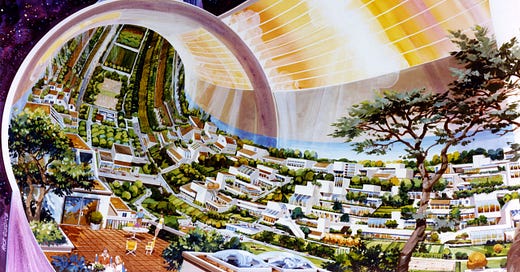



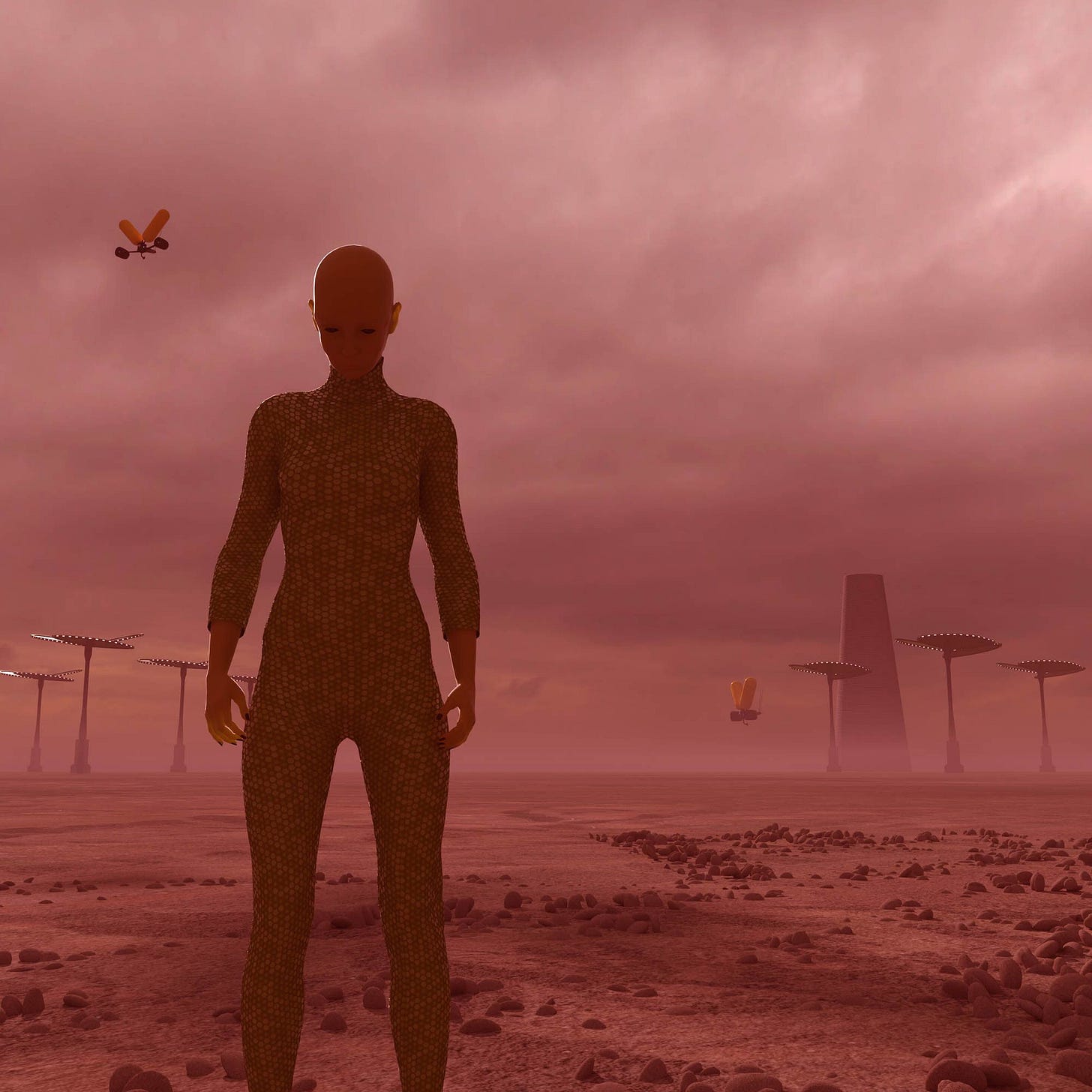
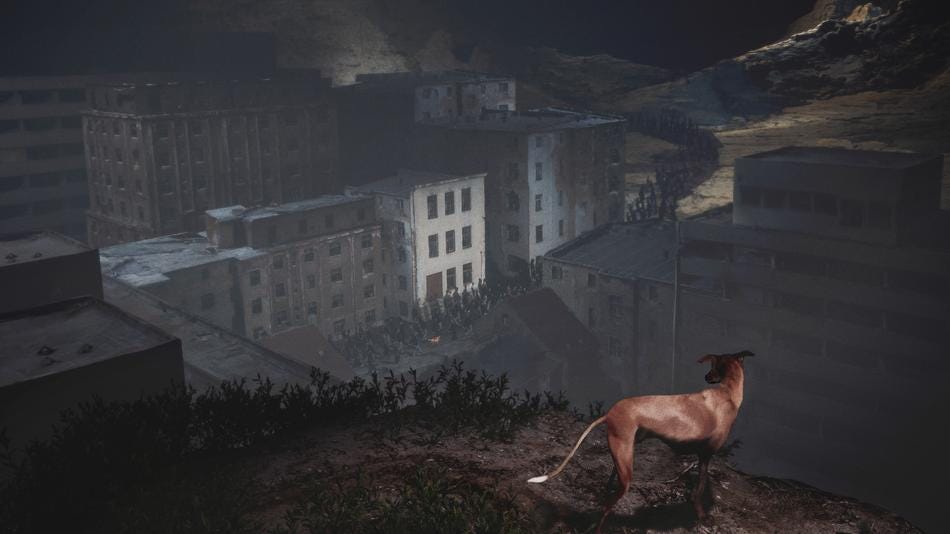
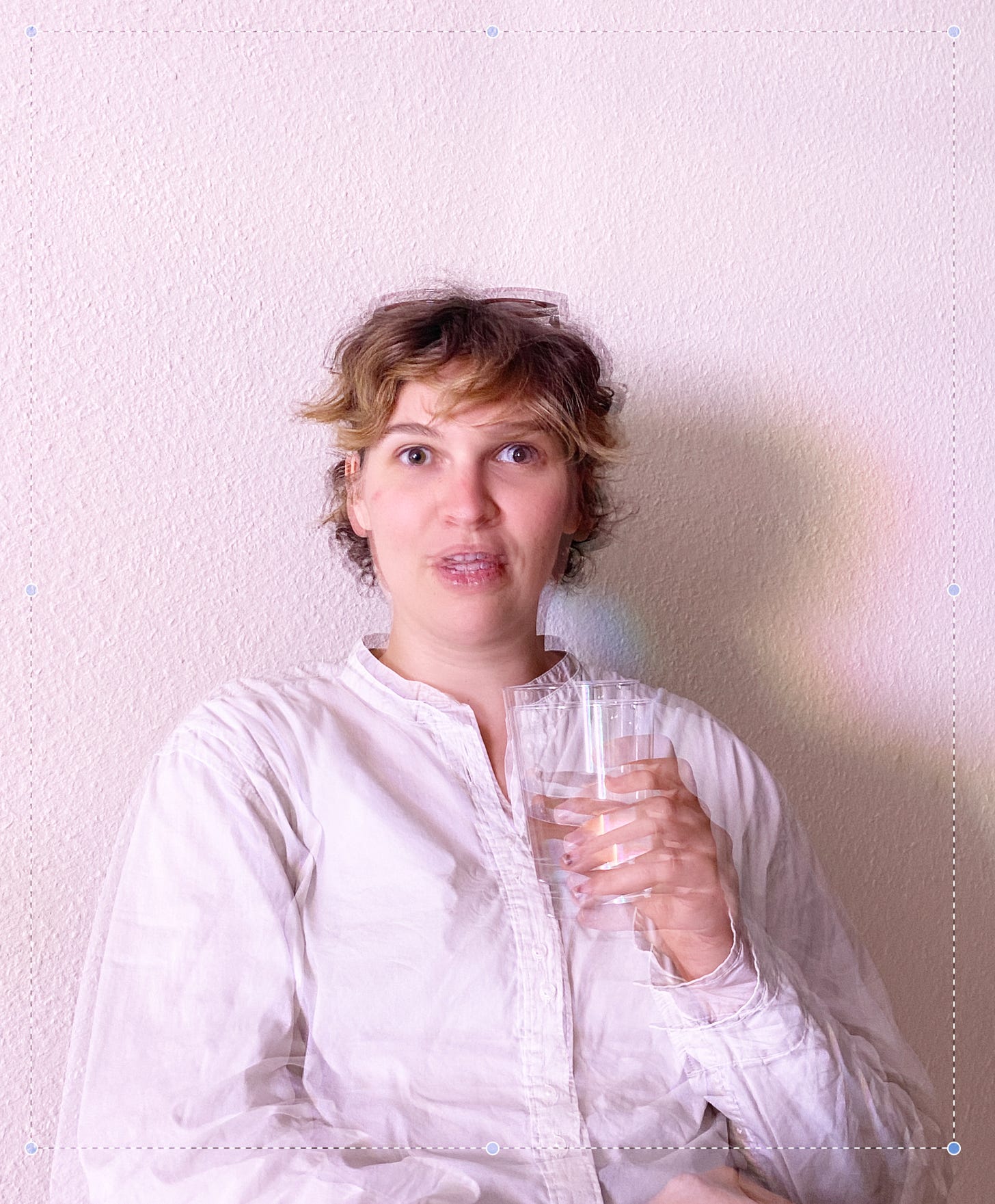
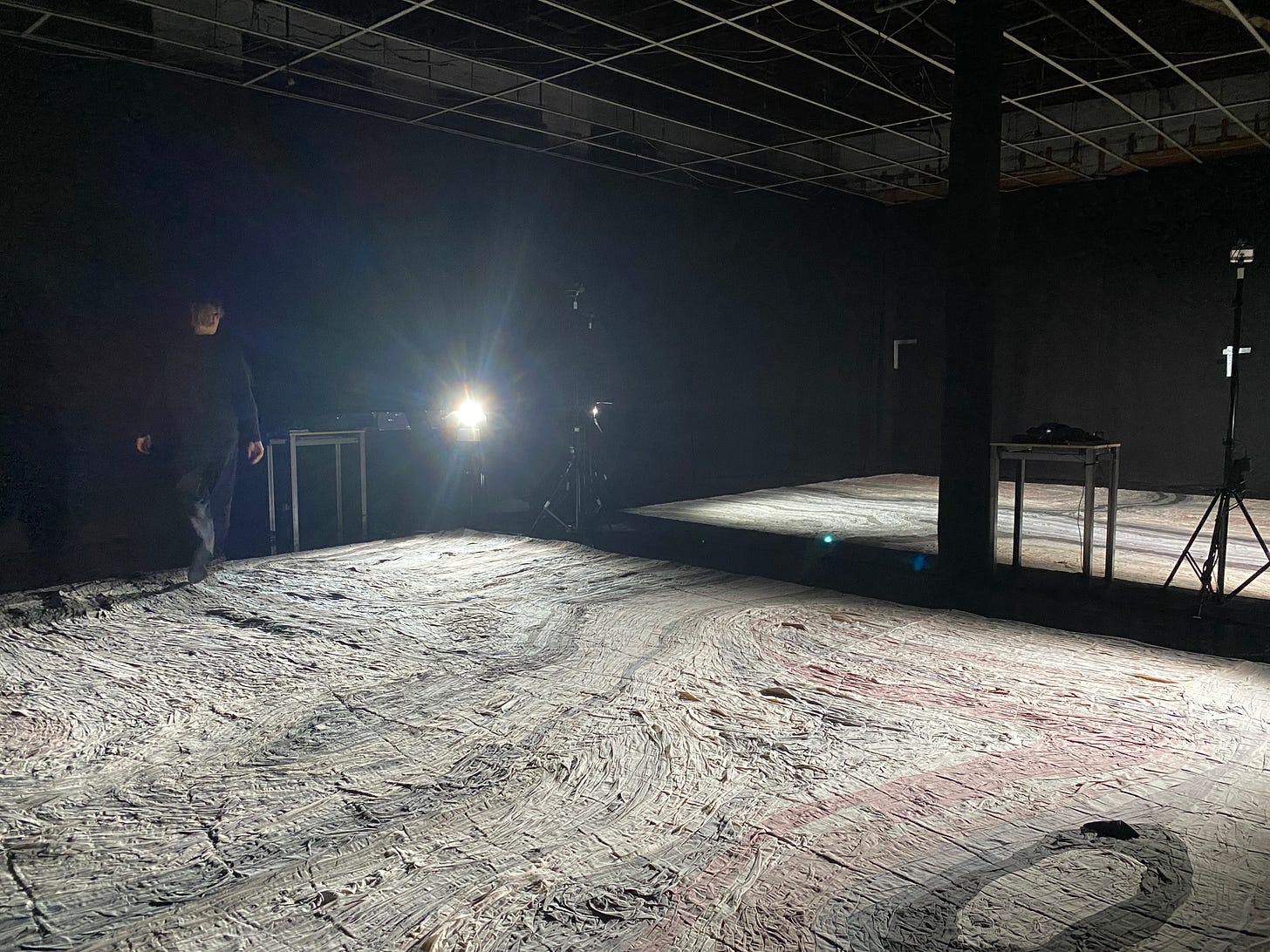
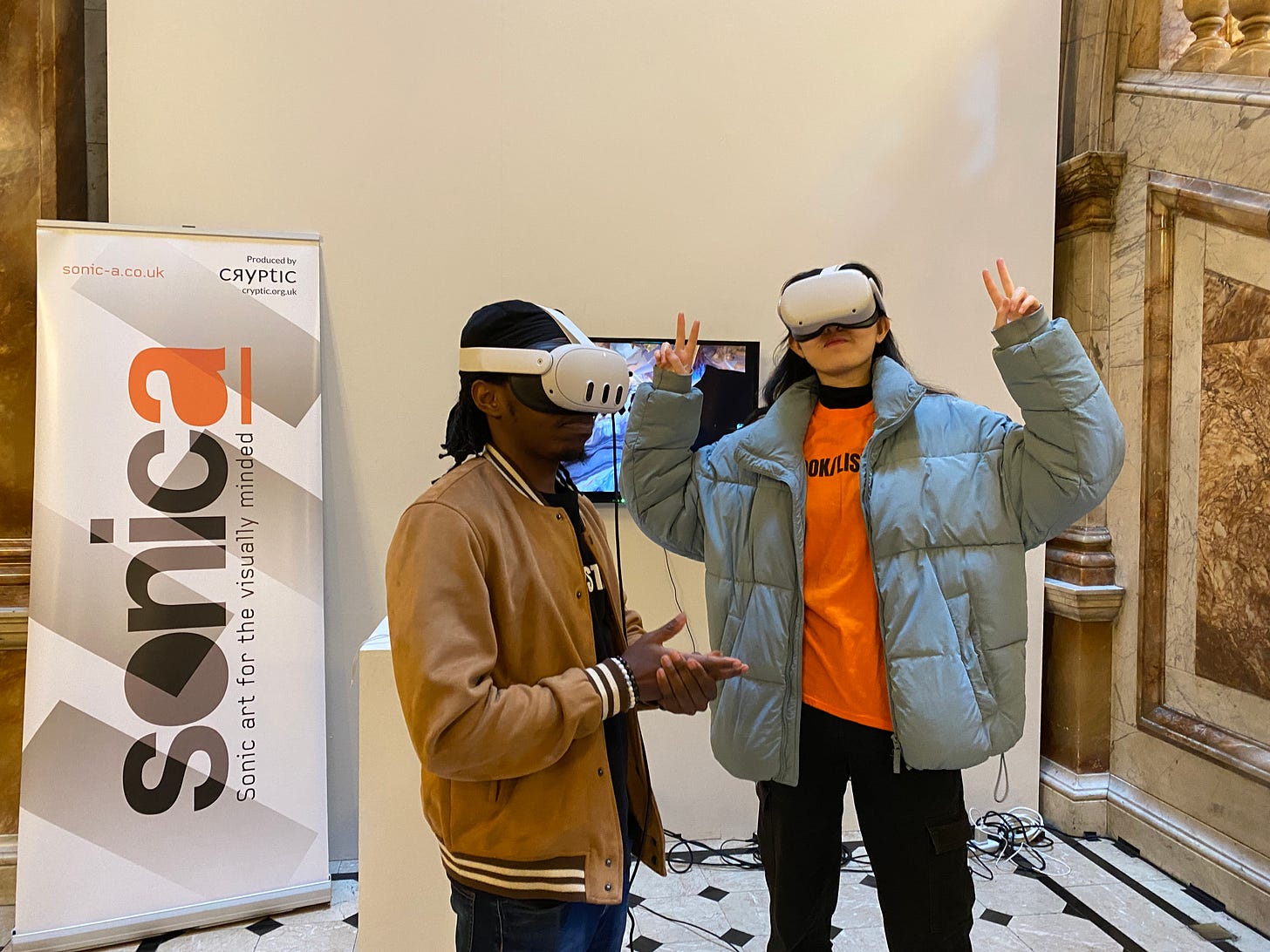
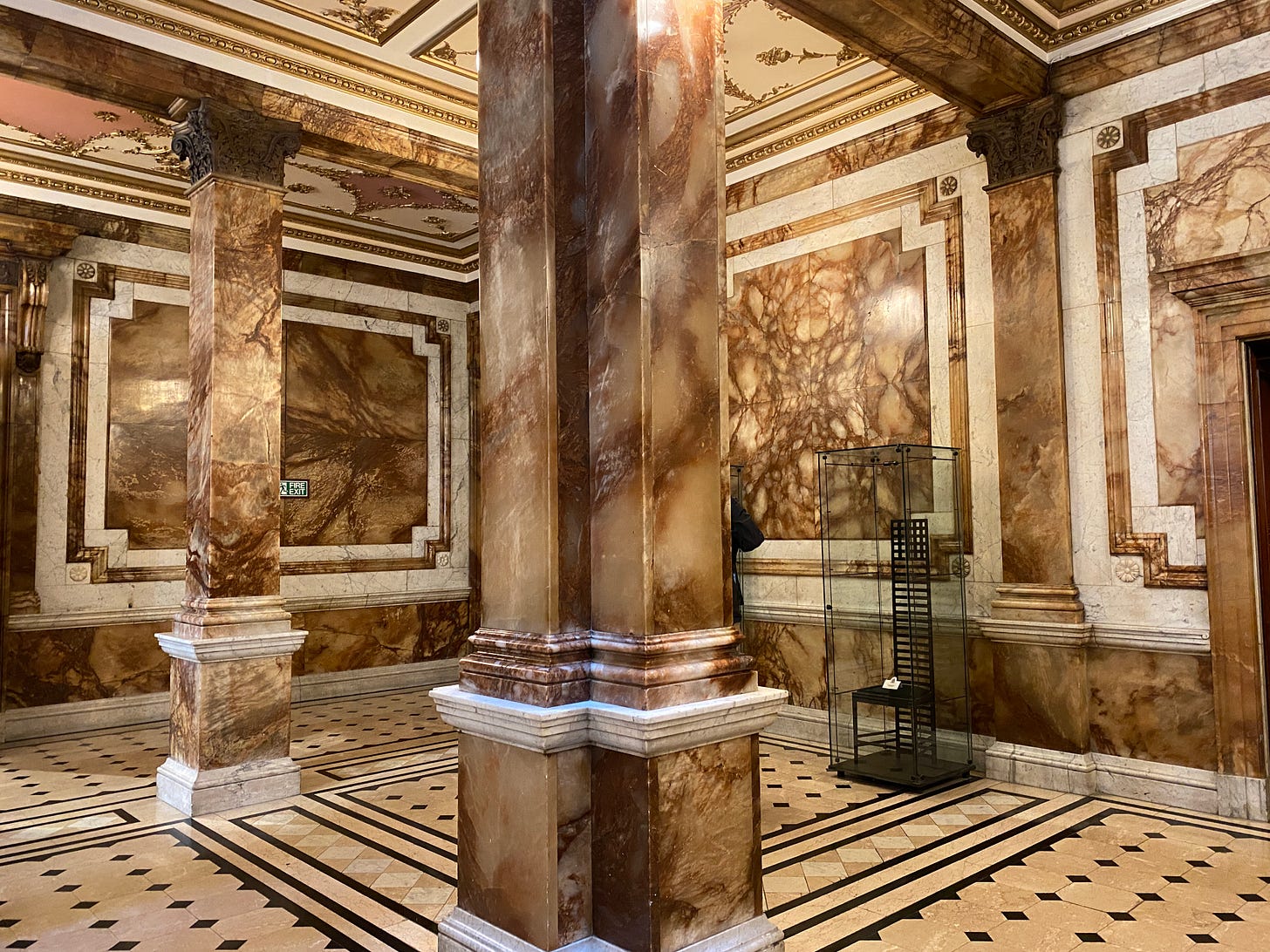
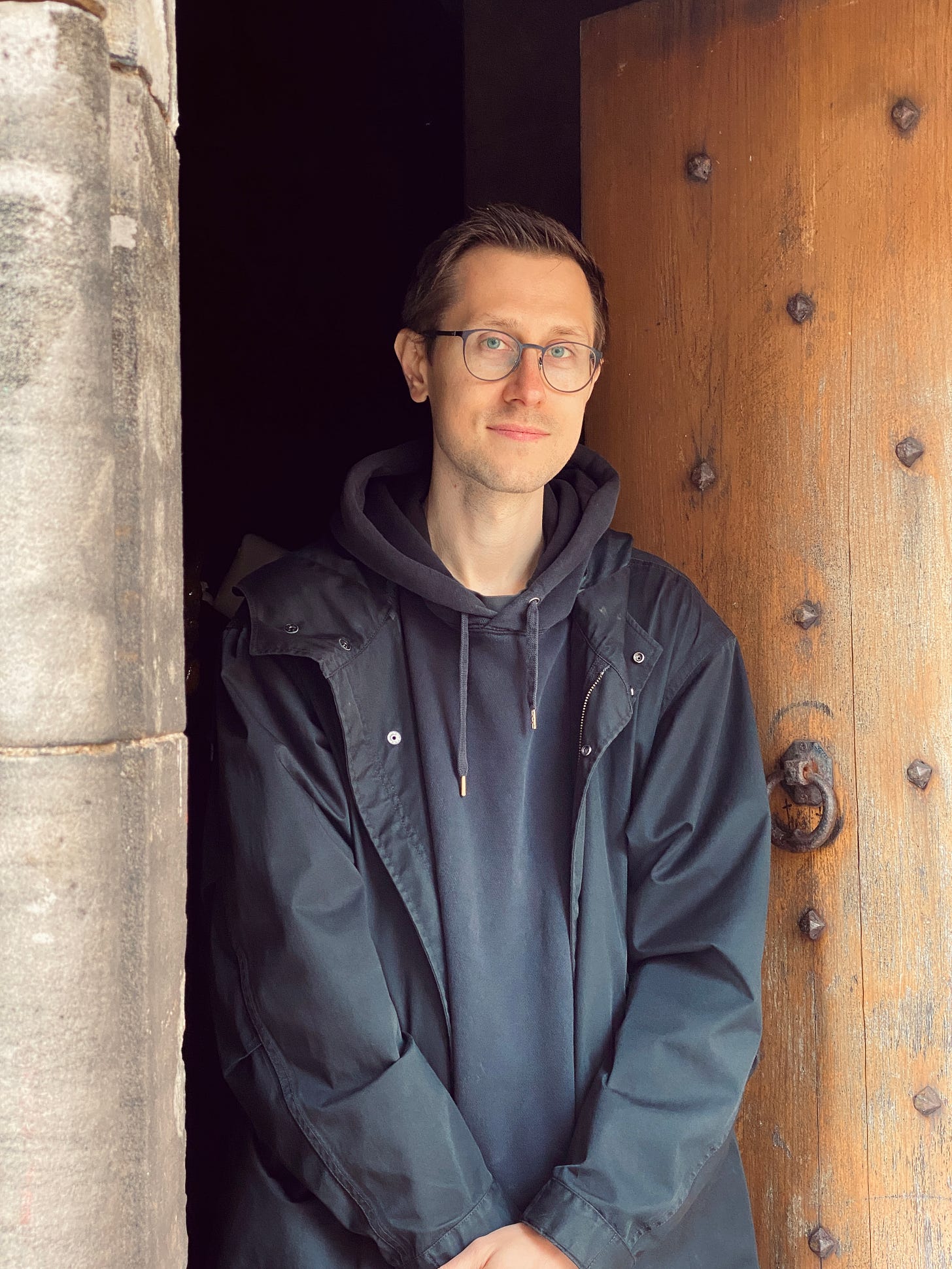

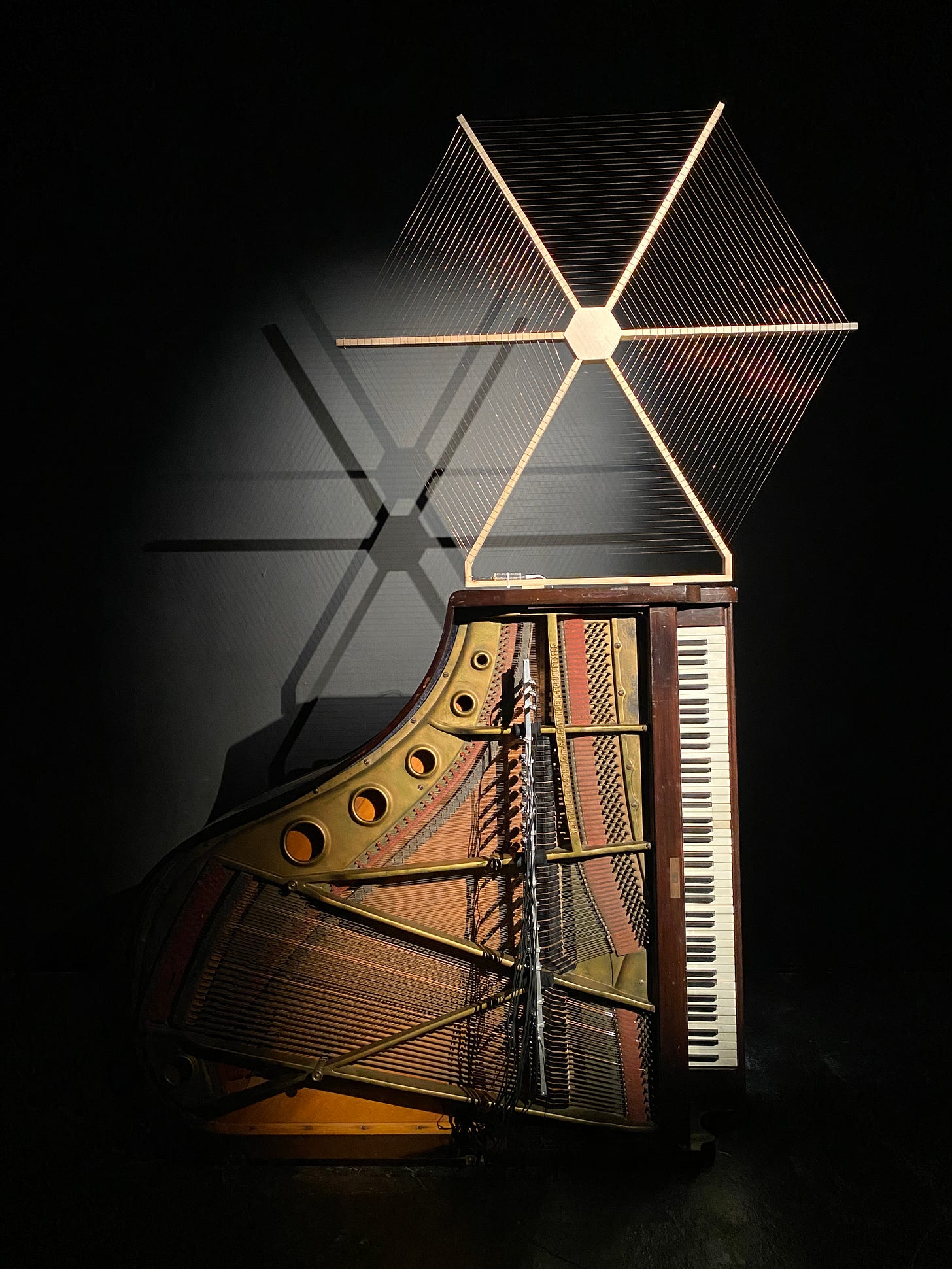
there is something wrong (or at least something that i don't understand) on substack: even now, after i read it, this post doesn't appear in my inbox. is it set to "private" or something?
I honestly think no one will go to live to mars, never mind what Musk have in mind. Perhaps some go to the moon to extract all the gold in it, but will return very soon with their dream glasses in their bags. Progress won’t stop though, whatever your notion of it could be